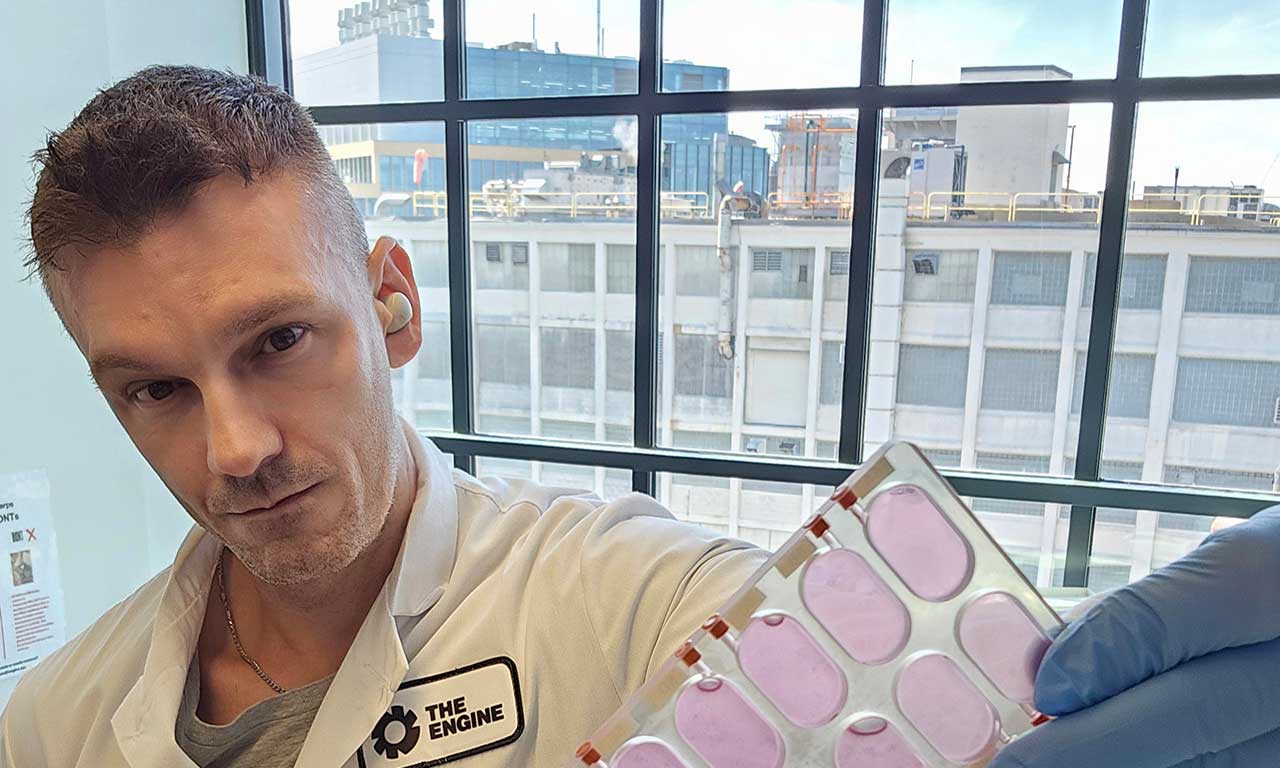Case Study
Developing a Treatment for All Cancers
ISSInternational Space Station Research Revealed Key to Cancer Cell Survival, Fueling Development of Groundbreaking New Therapeutic
ISS National Lab Opportunity
The ISS provides a platform to study cancer cells in new ways and enables 3D cell growth that more accurately represents how tumors grow.
On Earth, scientists can only grow cancer cells in single layers due to gravity. But in space, cancer cells form 3D structures that more accurately represent how tumors grow and behave in the human body. The stressful microgravityThe condition of perceived weightlessness created when an object is in free fall, for example when an object is in orbital motion. Microgravity alters many observable phenomena within the physical and life sciences, allowing scientists to study things in ways not possible on Earth. The International Space Station provides access to a persistent microgravity environment. environment also triggers changes in cancer cell signaling and gene expression, which affects how cancer cells communicate and respond to their environment. By growing 3D breast and prostate cancer cultures on the ISS, biotech startup MicroQuin could study cancer cells in ways not possible on Earth to better understand the mechanisms involved in cancer formation and growth.
Industries:
Pharmaceutical, Medical, Oncology
Strategic Focus Area:
Fundamental Science
Research Area:
Cancer Research
Institution:
Microquin
IMPACTFUL OUTCOME
Through research on the ISS, MicroQuin uncovered key pathways crucial to cancer cell survival and published results in a leading cancer journal.
MicroQuin found that the survival of cancer cells depends on their ability to regulate changes in their intracellular environment (the environment within cells). Cancer cells are constantly replicating, which puts a lot of stress on the cells and causes harmful changes in their intracellular environment. The cells respond by producing proteins called ICE regulators that perform whatever actions are necessary to correct the toxic intracellular environment and keep the cells alive. If researchers could design a drug that prevents ICE regulators from carrying out this vital function, the drug could target and kill cancer cells. MicroQuin published results related to its ISS National Lab-sponsored research in the journal Oncogene and is working on several patents.

INVESTIGATOR
Scott Robinson
Founder and CEO, Microquin

MicroQuin founder and CSO Scott Robinson, holding a specialized 12-well tissue culture plate containing breast cancer cells grown on the ISS.
Media Credit: MicroQuin/Scott Robinson
“It was our discoveries on the space station that really led us to identifying these key pathways and understanding why they are so important. What was so magical about our findings is that they don’t just apply to cancer. The new theories we came up with because of our ISS research allowed us to pivot to understand how our findings could be applied across many other disease areas as well.”
– Scott Robinson, MicroQuin founder and CEO

APPLICATION
MicroQuin developed a new therapeutic that could treat all types of cancer as well as other conditions like neurodegenerative disorders and traumatic brain injury.
Based on results from MicroQuin’s ISS National Lab-sponsored research, the company developed a small molecule therapeutic that binds to the ICE regulator TMBIM6. The drug alters how cancer cells regulate intracellular environment changes, causing the cells to die. Because TMBIM6 is only activated in cancer cells, healthy cells are left unharmed. When tested, the therapeutic worked not just for breast and prostate cancers but for all types of cancer. The team also discovered that targeting TMBIM6 could apply to drug development for other currently incurable conditions like Alzheimer’s, Parkinson’s, and traumatic brain injury. In the future, MicroQuin plans to partner with a larger pharmaceutical company to bring its therapeutics to market to provide life-saving treatments for cancer and other conditions.
Note: This content is abridged from an article originally published in Upward,
the official magazine of the ISS National Lab.


